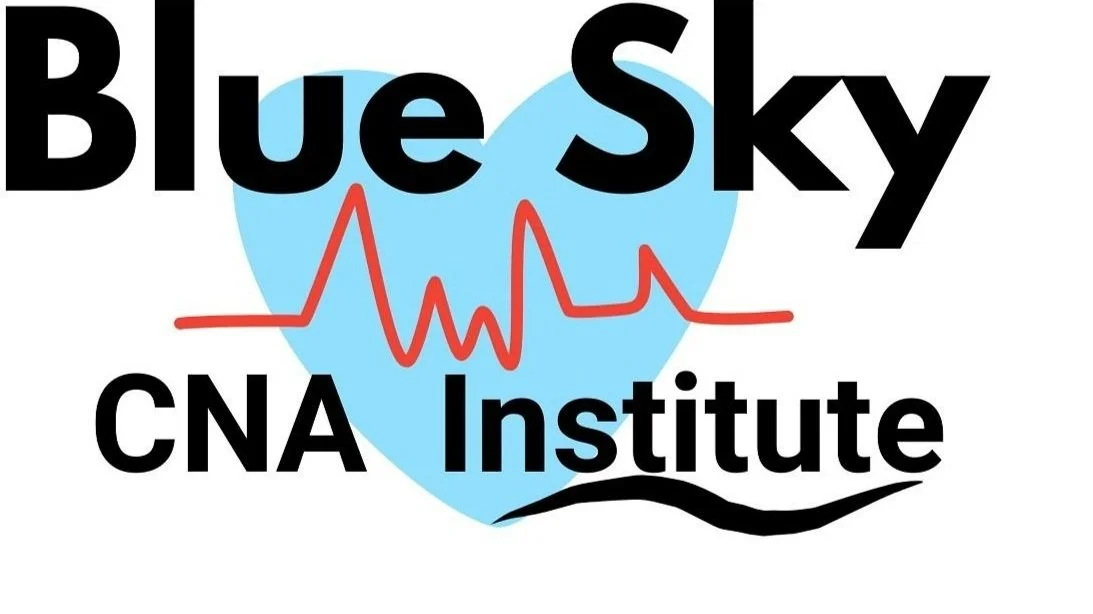
CNA - NURSE AIDE - NURSING ASSISSTANT
The terms : Nurse Aide, CNA (Certified Nursing Assistant), and Nursing Assistant all refer to the same vital healthcare profession.
Working directly under the supervision of a licensed nurse (RN or LPN), these individuals deliver fundamental nursing care to patients who are ill, injured, or disabled.
Their role extends beyond physical tasks to include addressing the emotional well-being of those they serve, providing comprehensive, patient-centered support.
Core Responsibilities
A significant portion of a nurse assistant's duties involves assisting patients with Activities of Daily Living (ADLs), which include:
Eating
Bathing
Dressing
Grooming
Using the toilet
Mobility
Beyond ADLs, nurse assistants are also responsible for:
Accurately obtaining routine measurements such as vital signs, height, and weight.
Assisting with patient admissions, transfers, and discharges.
Maintaining a safe, clean, and organized environment for patients
Providing Emotional Support
In addition to physical care, nurse assistants are instrumental in meeting the emotional needs of patients. Individuals requiring healthcare, along with their family members, often experience feelings of fear, worry, loneliness, and isolation.
Given the extensive daily contact nurse assistants have with patients and their families, they are uniquely positioned to offer crucial emotional support. Building genuine connections by getting to know patients as individuals and demonstrating sincere interest can significantly impact their well-being. Simple gestures like a smile, a comforting pat on the shoulder, or a willingness to listen convey empathy and reassurance, helping patients feel cared for and less alone.
Due to the substantial time spent with patients, nurse assistants are frequently the first to observe changes in a patient's condition or to learn of their concerns. For instance, you might notice a patient's decreased appetite or hear them express anxiety about an upcoming surgical procedure. Promptly sharing this information with the licensed nurse is essential for promoting quality care, ensuring that necessary steps are taken to investigate changes or address patient concerns.
-
The following outlines typical duties for a Certified Nurse Assistant:
Punctuality and Preparedness: Reports to work as scheduled and on time.
Shift Handoff and Rounds: Attends shift reports, organizes assignments, and conducts patient rounds.
Direct Patient Care: Delivers personal care and emotional support to assigned individuals.
Responsive Assistance: Considers all residents under their care and responds to requests for help promptly, typically within 5 minutes.
Dignified Care: Provides care in accordance with the resident’s care plan, always protecting their dignity and privacy.
Promoting Independence: Assists residents in maintaining or regaining their maximum level of independence.
Relationship Building: Fosters warm, positive, and supportive relationships with residents and their family members.
Timely Reporting: Reports any observations or concerns about a resident’s status to the supervisor/charge nurse in a timely fashion.
Accurate Documentation: Documents care provided and observations promptly and accurately.
Infection Control: Practices infection-control measures, including standard precautions, in accordance with facility policy and the resident’s care plan.
Environmental Maintenance: Keeps work areas and residents’ environments neat, clean, and orderly.
Measurement and Recording: Measures, accurately reports, and records vital signs, height, and weight.
Nutritional Support: Monitors and records intake and output; assists in serving meals, meal supplements, and fluids; and assists residents with eating as necessary.
Mobility Assistance: Assists residents with repositioning, transferring, and exercise.
Personal Hygiene: Assists residents with toileting, bathing, and grooming.
Admission/Discharge Support: Assists with admissions, transfers, and discharges as necessary.
Proactive Service Delivery: Takes initiative in delivering services, identifying needs and addressing them within the scope of practice.
End-of-Life Care: Participates in providing compassionate end-of-life care to dying residents and their family members.
Emergency Preparedness: Understands fire and disaster plans and personal duties in case of an emergency.
Care Collaboration: Participates in resident-care conferences.
Continuous Learning: Attends all mandatory in-service training sessions.
-
Prospective nurse assistants typically need to meet the following qualifications:
Certification: Must possess a valid nurse assistant certification in good standing with the state.
CPR Certification: Must have current CPR certification.
Background Check: Must pass a criminal background check.
Health Screenings: Must complete a health screening and tuberculosis screening within two weeks of hiring.
Drug Screening: Must pass a mandatory drug screening test within 90 days of hire.
Physical Stamina: Must be able to lift, push, and pull up to 30 pounds.
Computer Literacy: Must possess basic computer skills.
Communication Skills: Must possess effective communication skills and the ability to interact tactfully and respectfully with residents, family members, and visitors.
Organizational Skills: Must be able to multitask in a fast-paced work environment and prioritize duties.
Adherence to Policy: Must have the ability to understand and follow policies and procedures.



